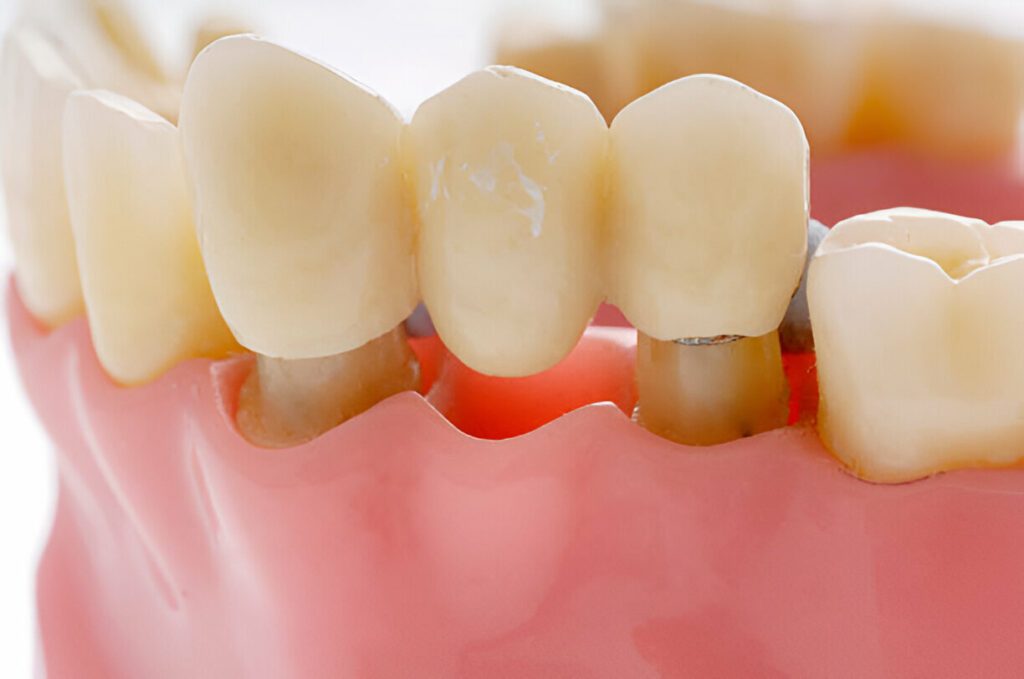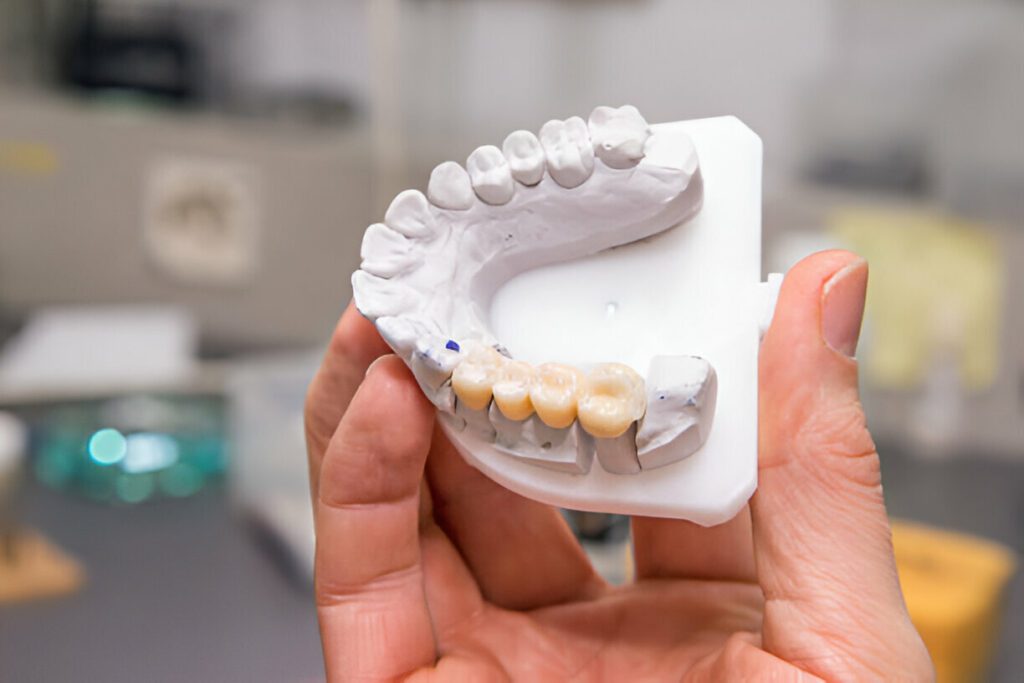Key takeaways:
–The cost of a dental bridge can range from $2,000 to over $5,000.
–The choice of bridge and its material can significantly affect the cost.
–Certain dental insurance plans provide coverage for the cost of a dental bridge.
When it comes to the cost of a dental bridge, several factors come into play. The average cost of a dental bridge can vary depending on various factors, including the type of bridge, the materials used, the location of the dental practice, and the experience of the dentist.
There are different types of bridges available, including traditional bridges, implant-supported bridges, and Cantilever bridges. Traditional bridges use adjacent teeth as support for an artificial tooth or teeth, while implant-supported bridges utilize dental implants as anchorage. Cantilever bridges are used when only one adjacent tooth is available for support. These different types of bridges can have different costs associated with them.

The materials used in the construction of dental bridges also affect the overall price. Bridges can be made from a variety of materials, including porcelain-fused-to-metal, all-porcelain, and metal alloys. Each material has its own cost and durability, which can impact the total cost of the bridge.
The placement of a dental bridge involves several dental procedures, such as tooth preparation, dental crown placement, and potential additional treatments like root canals or gum disease treatments. These additional procedures can increase the overall cost of the dental bridge.
Insurance coverage also plays a role in the cost of a dental bridge. Dental insurance plans may cover a portion of the cost, reducing the out-of-pocket expenses. However, it is important to check with insurance providers and understand the coverage details.
Will dental insurance cover dental bridges?
Dental insurance coverage for dental bridges can vary depending on the specific insurance policy and provider. Factors that may affect coverage include the type of bridge being used, the reason for the bridge (such as replacing missing teeth due to injury or decay), and the individual’s oral health.
To determine if a specific insurance policy covers dental bridges, it is important to review the policy details or contact the insurance provider directly. Some insurance companies may cover a percentage of the cost for certain types of bridges, while others may have a set dollar amount limit for coverage.
Additionally, insurance policies may require documentation such as X-rays or treatment plans from a dentist to determine if the bridge is medically necessary. Pre-existing conditions, such as bone loss or gum disease, may also affect coverage.
It is advisable to consult with our dentist who can provide guidance on navigating dental insurance plans and determining the coverage for dental bridges. We can also help explore alternative financing options or payment plans to make dental bridges a more affordable option.
Is a dental bridge more financially efficient compared to an implant?

When it comes to replacing missing teeth, there are several options available, including dental bridges and dental implants. Both of these treatments address the issue of missing teeth, but they come with different costs and considerations.
Dental bridges are artificial teeth that are anchored to adjacent natural teeth, also known as abutment teeth. They are a more traditional and affordable option compared to dental implants, which are artificial tooth roots implanted into the jawbone.
The cost of a dental bridge can vary depending on factors such as the type of bridge, materials used, and additional treatments required. On the other hand, dental implants may have a higher initial cost but can provide long-term benefits due to their durability and ability to prevent bone loss.
Understanding the pros and cons of each treatment and consulting with an experienced dentist can help determine which option is more cost-effective in the long run.
Are there various kinds of dental bridges?
There are four main types of dental bridges available: traditional bridge, cantilever bridge, Maryland bridge, and implant-supported bridge.
1. Traditional bridge: This is the most common type of dental bridge used to replace one or more missing teeth. It involves using false teeth, also known as pontics, to bridge the gap between adjacent healthy natural teeth. Dental crowns are placed on these natural teeth to act as abutment teeth and support the bridge.
2. Cantilever bridge: Similar to the traditional bridge, the cantilever bridge is used when there is only one healthy natural tooth adjacent to the gap. The false tooth is connected to a dental crown that is placed on the healthy tooth.
3. Maryland bridge: This type of bridge is a conservative option that does not require the preparation of adjacent teeth. It uses a metal or porcelain framework bonded to the back of adjacent teeth. The false tooth is then attached to the framework.
4. Implant-supported bridge: This type of bridge is considered the most stable and durable option. It involves the use of dental implants, which are titanium posts surgically placed into the jawbone. These implants act as artificial tooth roots to support the bridge. The prosthetic teeth are attached to the implants, providing a natural-looking and functioning solution.
The materials used for dental bridges include porcelain, ceramic, metal alloys, and a combination of these materials. The procedure for each type of bridge may vary, but it generally involves multiple visits to the dentist, preparation of teeth, impressions, and the final placement of the bridge.
It is important to consult with a dentist to determine the most suitable type of dental bridge based on individual oral health, specific needs, and budget. Prospective patients should also consider financing options, insurance coverage, and additional treatments that may be required.
What do I need to get a dental bridge?
To obtain a dental bridge, several requirements must be considered by dentists. The foremost factor is the number and condition of the missing teeth. A dental bridge is typically used to replace one or more missing teeth and relies on adjacent natural teeth or dental implants to anchor the artificial teeth in place. If there are no healthy adjacent teeth or sufficient bone density for implants, alternative tooth replacement options may be explored.
Overall dental health is another crucial criterion. Before proceeding with the bridge procedure, dentists need to ensure that the patient’s gums and remaining natural teeth are in good condition. Any underlying oral health issues, such as gum disease or the need for a root canal, should be addressed beforehand.
The requirements also extend to a patient’s general health. If an individual has certain medical conditions that could hinder the healing process or impact the success of the procedure, dentists may need to assess the suitability of a dental bridge.
When it comes to costs, they can vary depending on several factors, including the type of bridge chosen and any additional treatments required. Traditional bridges tend to have an average cost between $500 and $1,500 per tooth, while implant-supported bridges can range from $3,000 to $25,000 or more, depending on the number of implants needed. Other potential costs include dental crowns, treatment for gum disease, and root canals.
Ultimately, the requirements for obtaining a dental bridge revolve around the number and condition of missing teeth, overall dental health, and general health. Consulting with an experienced dentist will help determine the specific factors and costs involved in each individual case, allowing for a personalized treatment plan and suitable financing options if needed.
Do dental bridges last forever?
Dental bridges are a popular tooth replacement option that can restore the appearance and function of missing teeth. The permanence of dental bridges depends on various factors, including the type of bridge and the materials used.
The materials used in dental bridges also play a role in their durability. Bridges can be made from a variety of materials, including porcelain, metal alloy, or a combination of both. Porcelain bridges are aesthetically pleasing but may be less durable than metal bridges.
On average, dental bridges can last anywhere from 5 to 15 years, depending on the type and maintenance. Regular oral care, including brushing, flossing, and dental check-ups, is essential to maintain the bridge’s lifespan. However, bridges may need to be replaced over time due to wear and tear or damage.
It is important to consult with an experienced dentist to determine the most suitable type of bridge and materials for individual needs. Additionally, considering financing options, insurance plans, and dental service costs can help make dental bridge treatment an affordable option.
Pros and cons of dental bridges

Dental bridges, a common tooth replacement option, offer both benefits and drawbacks to patients. One of the major advantages is that they restore the functionality of missing teeth, allowing individuals to chew and speak properly. Additionally, dental bridges maintain the natural alignment of adjacent teeth, preventing them from shifting and causing further oral health issues.
However, there are certain considerations to keep in mind. The placement of dental bridges often requires the modification of adjacent teeth, as they serve as support for the bridge. This can lead to weakened natural teeth and potentially necessitate the need for dental crowns. Moreover, dental bridges are unable to prevent bone loss in the jaw, which may occur when missing teeth are left untreated. If bone loss does occur, bone grafts may be required to provide a stable foundation for the bridge.
Factors such as aging, genetic defects, and untreated periodontal disease can also contribute to the need for dental bridges. As we age, our natural teeth may become weaker and more prone to decay, making tooth loss more likely. Genetic defects or conditions that affect tooth development may also necessitate the use of dental bridges. Additionally, untreated periodontal disease can cause tooth loss and may require a bridge as part of the treatment plan.
Ultimately, dental bridges can provide an affordable and effective tooth replacement option. However, it is crucial to consult with an experienced dentist to determine if this treatment plan is suitable. They can address individual concerns and offer additional treatments or financing options if needed. Dental insurance plans may also cover a portion of the cost, lowering the overall financial burden for patients.






